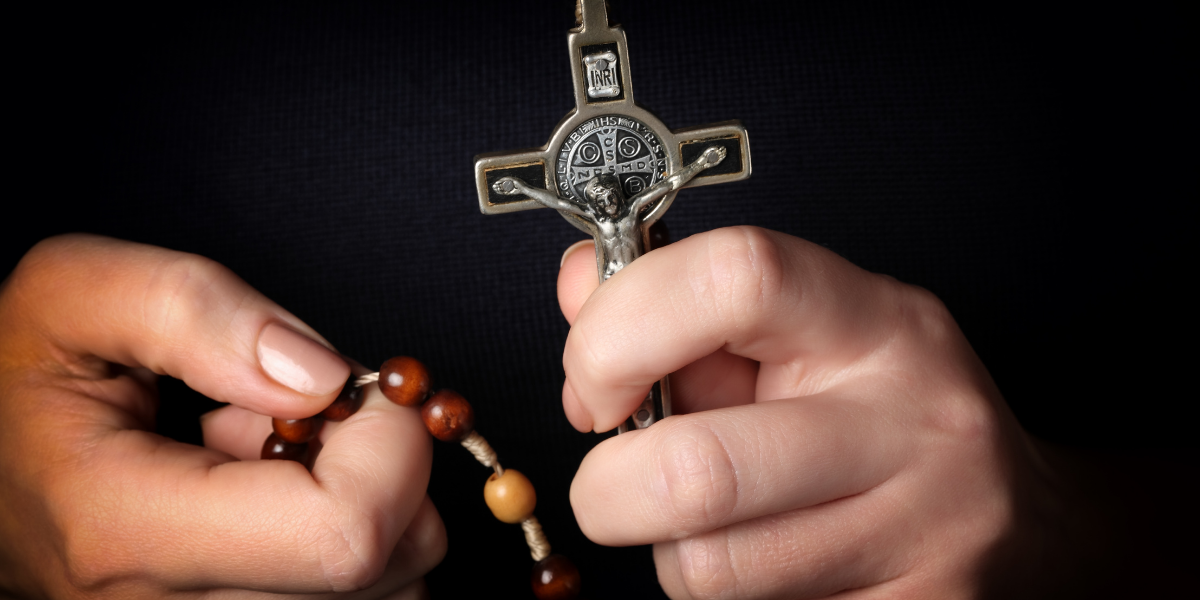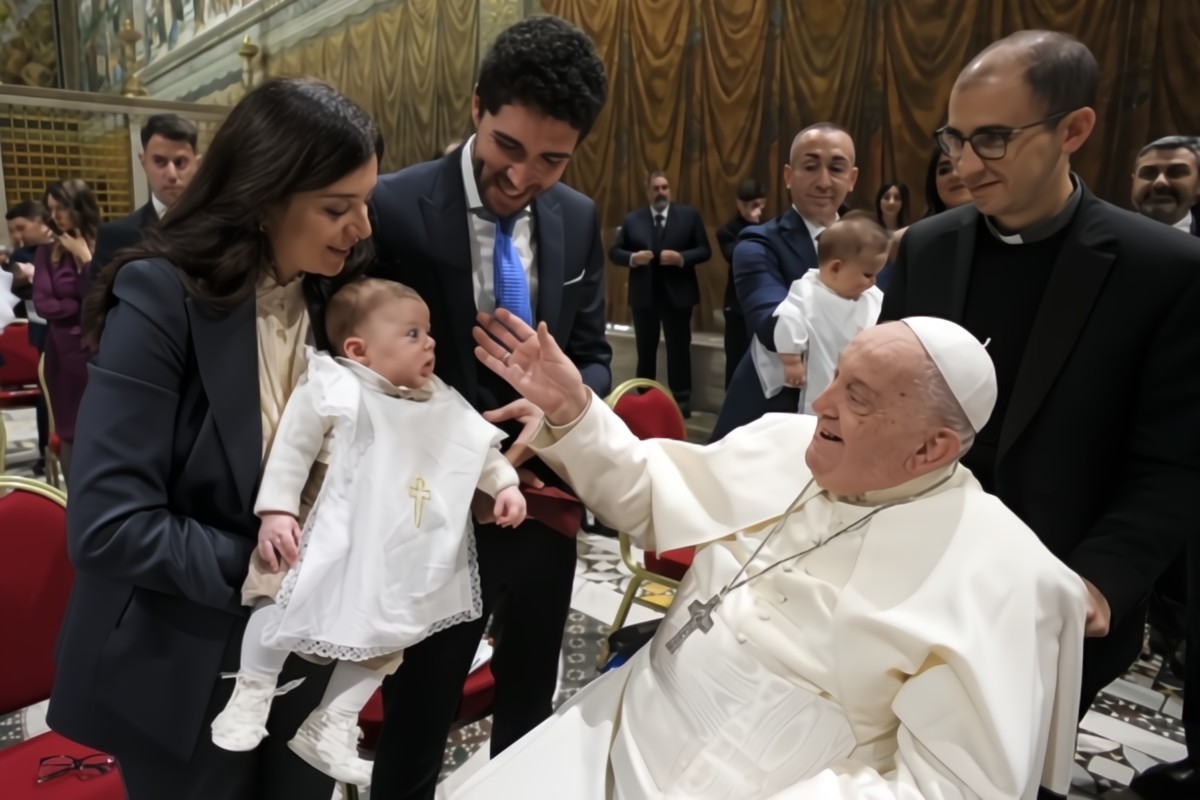Civil Rights Commission Calls Hate Crimes Bill a 'Menace'
FREE Catholic Classes
The US Commission on Civil Rights has now weighed in the hate crimes debate.
Highlights
Catholic Online (https://www.catholic.org)
6/19/2009 (1 decade ago)
Published in Politics & Policy
WASHINGTON, D.C. (LifeSiteNews.com) - The US Commission on Civil Rights has now weighed in the hate crimes debate, imploring the Senate to vote against the measure, which would not only make homosexuals a protected group, but more importantly would allow the federal government to have an individual prosecuted a second time under its rules for the same crime.
The federal commission sent the communiqué, dated June 16, to sixteen leaders in the Democratic-controlled Senate, which was then posted by National Review's blog, the Corner, by Peter Kirsanow.
The letter comes just as leading Senate Democrats have confirmed that a vote on Matthew Shepard Hate Crimes Prevention Act (MSHCPA - S. 909) will come sometime before the end of the August recess, but not this week, contradicting an earlier report based on information provided by an unnamed source to the Washington Blade. The letter is a reiteration of the commissioners concerns, which were delivered to House leaders back in April.
"We believe that MSHCPA will do little good and a great deal of harm," states the commissioners' letter, warning that, "Its most important effect will be to allow federal authorities to re-prosecute a broad category of defendants who have already been acquitted by state juries -- as in the Rodney King and Crown Heights cases more than a decade ago."
The commissioners' letter stated that although the US Constitution forbids an individual from "double jeopardy" - being tried by the government twice for the same offense - there are no protections in place under the Constitution for prosecution by "dual sovereigns" - indicating that the "hate crimes" bill opens up an individual to a double prosecution by state and federal government, violating the spirit of the law, but technically not the letter.
"We regard the broad federalization of crime as a menace to civil liberties," stated the commissioners. They pointed out that the loophole to "double jeopardy" exists because the authors of the Bill of Rights "never dreamed that federal criminal jurisdiction would be expanded to the point where an astonishing proportion of crimes are now both state and federal offenses."
They continue that the law as written does not merely require "the defendant be inspired by hatred or ill will in order to convict." Instead, "It is sufficient if he acts 'because of' someone's actual or perceived race, color, religion, national origin, gender, sexual orientation, gender identity or disability."
The letter indicates that "prosecutors will have 'two bites at the apple' for a very large number of crimes," because the objective language of the law opens up the possibility that individuals accused of a crime that is perceived to fill any one of the "hate crimes" criteria could face trial twice. The letter gives the example that those accused with rape or robbing a disabled victim, could face trial twice for the same crime, because the victims in these circumstances "literally ... are chosen 'because of' their gender or disability."
"DOJ [Department of Justice] officials have argued that MSHCPA is needed because state procedures sometimes make it difficult to obtain convictions," continued the letter.
"Such an argument should send up red flags. It is just an end-run around state procedures designed to ensure a fair trial."
The Senate bill (S. 909), along with its companion legislation in the House (H.R. 1913), adds "sexual orientation" and "gender identity" as well as race, religion, class, gender, and disability to categories that are protected as "hate crimes." Under this legislation, crimes against individuals who belong to the protected classes receive stiffer penalties than crimes against other groups not mentioned by the bill, a fact that critics charge makes "second class citizens" out of those not covered by the law.
Christian leaders have expressed particular concern that attempts to secure the right to speak against the homosexual lifestyle and its normalization have failed. Among many rejected proposals for the bill was one offered by Rep. Louis Gohmert, R-Texas, which would have included a clause ensuring ministers could not be prosecuted for abetting a "hate crime" simply because they preached the Christian perspective on homosexuality.
Rep. John Conyers (D-Mich.), the Congressman who introduced H.R. 1913, claimed the bill posed no danger to Christian free speech, saying that it "only applies to bias-motivated violent crimes and does not impinge public speech or writing in any way." Section 10 of H.R. 1913 states: "Nothing in this Act, or the amendments made by this Act, shall be construed to prohibit any expressive conduct protected from legal prohibition by, or any activities protected by the free speech or free exercise clauses of, the First Amendment to the Constitution."
Yet free speech advocates have pointed out that under current U.S. law, any action that "abets, counsels, commands, [or] induces" a perceived "hate crime" shares in the guilt of that crime, and is therefore punishable.
Legislators opposed to the measure have also called it the "pedophile protection act," after House members refused to approve an amendment specifying that the bill define "sexual orientation," an oversight that some legislators charge could lead to a too broad interpretation - since the term is used by the American Psychiatric Association to encompass over 547 sexual deviancies (including pedophilia), and not just homosexuality.
WorldNetDaily reports that sources in the Senate tell them the campaign protesting the passage of "hate crimes" - which has generated at least 625,000 letters sent to Senators - has altered the dynamics in the Senate, where they had expected the vote on the bill to proceed smoothly.
---
'Help Give every Student and Teacher FREE resources for a world-class Moral Catholic Education'
Copyright 2021 - Distributed by Catholic Online
Join the Movement
When you sign up below, you don't just join an email list - you're joining an entire movement for Free world class Catholic education.

-

-
Mysteries of the Rosary
-
St. Faustina Kowalska
-
Litany of the Blessed Virgin Mary
-
Saint of the Day for Wednesday, Oct 4th, 2023
-
Popular Saints
-
St. Francis of Assisi
-
Bible
-
Female / Women Saints
-
7 Morning Prayers you need to get your day started with God
-
Litany of the Blessed Virgin Mary
Introducing 'Journey with the Messiah' - A Revolutionary Way to Experience the Bible
-

9 Harmful Practices to Avoid When Confronting the Devil
-

Pope Francis Celebrates the Feast of the Baptism of the Lord with Special Emphasis on the Gift of Faith
-
New Respiratory Virus Spreads Across China: Is it a Threat to the Global Community?
-
Resurgent Nuclear Threats and the Call for Peace
Daily Catholic
 Daily Readings for Tuesday, January 14, 2025
Daily Readings for Tuesday, January 14, 2025 St. Felix of Nola: Saint of the Day for Tuesday, January 14, 2025
St. Felix of Nola: Saint of the Day for Tuesday, January 14, 2025 Prayer for a Blessing on the New Year: Prayer of the Day for Tuesday, December 31, 2024
Prayer for a Blessing on the New Year: Prayer of the Day for Tuesday, December 31, 2024- Daily Readings for Monday, January 13, 2025
- St. Hilary of Poitiers: Saint of the Day for Monday, January 13, 2025
- St. Theresa of the Child Jesus: Prayer of the Day for Monday, December 30, 2024
![]()
Copyright 2024 Catholic Online. All materials contained on this site, whether written, audible or visual are the exclusive property of Catholic Online and are protected under U.S. and International copyright laws, © Copyright 2024 Catholic Online. Any unauthorized use, without prior written consent of Catholic Online is strictly forbidden and prohibited.
Catholic Online is a Project of Your Catholic Voice Foundation, a Not-for-Profit Corporation. Your Catholic Voice Foundation has been granted a recognition of tax exemption under Section 501(c)(3) of the Internal Revenue Code. Federal Tax Identification Number: 81-0596847. Your gift is tax-deductible as allowed by law.







 Daily Readings for Tuesday, January 14, 2025
Daily Readings for Tuesday, January 14, 2025 St. Felix of Nola: Saint of the Day for Tuesday, January 14, 2025
St. Felix of Nola: Saint of the Day for Tuesday, January 14, 2025 Prayer for a Blessing on the New Year: Prayer of the Day for Tuesday, December 31, 2024
Prayer for a Blessing on the New Year: Prayer of the Day for Tuesday, December 31, 2024


